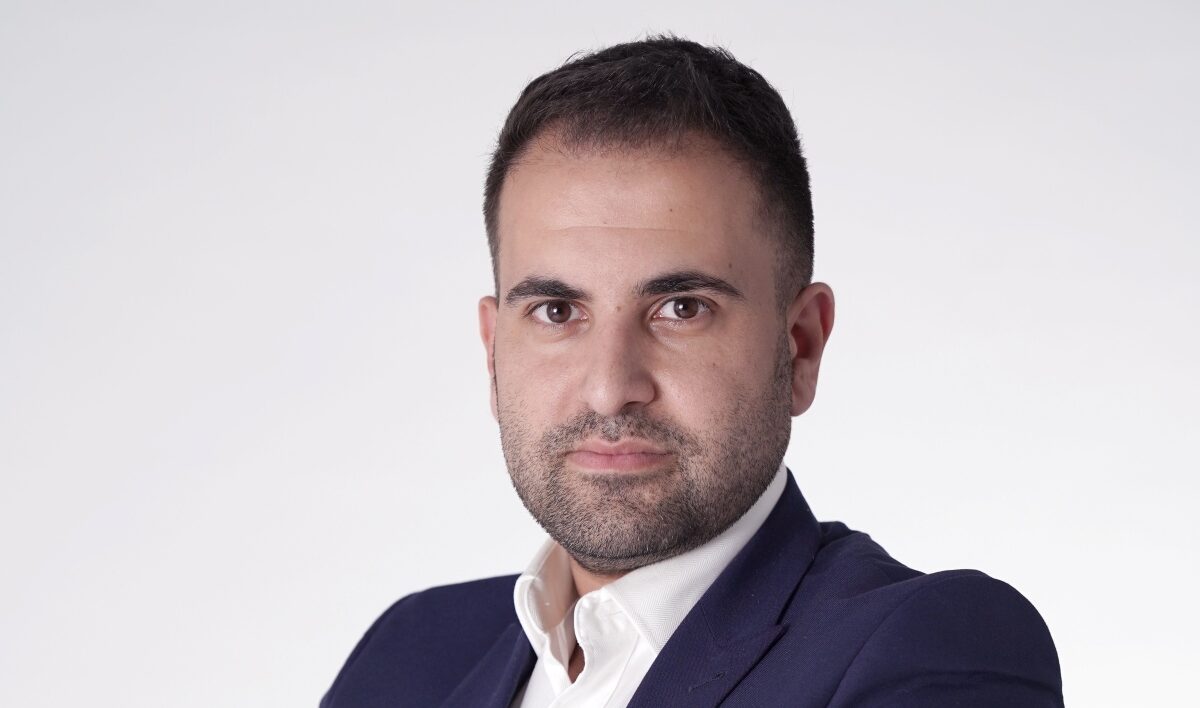Since 1982, Dhalia Real Estate has operated in the commercial industry, creating enduring alliances with corporate clients seeking a space from which to operate, and grow their business.
“When you’re working within this space, you’re not simply meeting one-off buyers, and finalising singular deals, but you’re partnering with your client – you’re helping them secure the success of their business,” says Bjorn Kristensen, Residential and Commercial Consultant at Dhalia CRE, the Group’s brand which specialises in commercial property leasing and sales.
These are clients who always do “the math before making a decision,” and who are committed to scaling their enterprises, Bjorn says. “Once you broker one deal, typically, you have forged a collaboration,” the consultant attests, for, Dhalia CRE boasts a team of consultants who are “meticulously trained and selected to specialise in the commercial sector.” This guarantees that Dhalia CRE can “provide businesses with both the knowledge and background needed” to make the right choices for their organisations, while also providing, “continuous support throughout the commercial property lease or purchase process,” Bjorn continues.
This becomes invaluable, particularly when organisations are geared to grow their influence and footprint. “If you have clients who are franchising a brand, for instance, we would broker one place, and then help them continue to expand,” Bjorn states. At the heart of such a collaboration are shared values – trust, commitment and attention to detail – which the consultants at Dhalia CRE prioritise.

“I think the way we approach clients is unique; we don’t see them as just a number. Rather, every single one of their needs are important, and we treat them as such, whether we’re dealing with a business owner who wants to open a small take away, an SME looking for offices or a larger firm seeking a bigger space. We’re geared towards treating all businesses equally,” Bjorn explains, adding that their interest is not simply closing the deal but finding the right property for their clients.
To ensure such a consistent approach, Dhalia CRE launched a training programme on 1st December 2022, to accredit consultants in commercial property sales and leasing. Accordingly, Dhalia is, now, licensed by the Malta Further and Higher Education Authority, as a Further Education Institution and as an Official Training Centre for Licensing Real Estate Consultants as well as training for Commercial Real Estate Specialists.
The course, Bjorn attests – having taken it himself – consists of “a hands-on approach and detailed training, making Dhalia the benchmark to follow, always setting higher standards within the industry.” To this effect, it helps agents “be better informed and trained to give the best service to our clients,” by covering a range of topics such as commercial valuations, research and marketing, tailored to the particular industries within which its clients operate. This is all done in-house to ensure all of the Group’s agents “get the same, and the right amount of instruction, with everyone on board with the programme, and attentive,” he attests.
Accreditation is beneficial to the industry and to the individual agents themselves, Bjorn continues. With regards to the former, it ensures a “minimum standard of competence and professionalism in the industry, protecting consumers from unscrupulous practices. It also enhances consumer trust and confidence, leading to more transparent transactions. It helps regulate the market, reducing fraud and misconduct.” In terms of the latter, “accreditation provides a competitive edge, improving agents’ credibility and marketability. It promotes continuous professional development, fostering a culture of learning and up-to-date knowledge within the real estate sector,” he asserts.
Bjorn has first-hand experience of these benefits, and indeed, the training programme launched his career within the commercial property sector. “I have always worked in sales, and I moved to Dhalia in 2017. However, after taking the course, I started involving myself more and more with their corporate and business clientele.” He credits the programme for igniting his interest in this sector. “During some of the sessions, we had company CEOs talking to us about what they look for in a property agent, and I found this fascinating,” he says, attesting to the effectiveness of such meetings to encourage the development of both soft and hard skills in the purchasing or leasing process.

“It’s vital to listen to clients such as these since most businesspeople don’t have time to waste. So, for instance, you cannot offer a space of 500 square metres when they specifically asked for 1,000 square metres. Agents need to be attentive to what the client is requesting,” Bjorn continues, saying that the course also “cultivates critical thinking, problem-solving and communication skills.”
Moreover, a consultant at the top of their game would also need to have a comprehensive understanding of the more technical aspects of the post – and this is something the course caters for. “The programme also instructed us on a wide range of topics, including property law, regulations, financing, marketing, negotiation, and ethics. Students learn about the real estate market dynamics, property valuation and investment strategies.
“Finally, at the end, the course was rounded off with an assignment in which they gave us a fictional client for which we needed to find a property, creating a proposal and ensuring it matches the client’s needs and is financially viable,” he says, explaining that this was part of the practical training which also included “simulated transactions, property management exercises and field experience.”
Such formative instruction is key, particularly in a post-COVID-19 world wherein corporate requirements for property have shifted and keep evolving. “Over the past few years, the commercial property service sector has experienced significant changes. The pandemic led to a shift in work patterns, with remote work becoming more prevalent, impacting the demand for office spaces. Many businesses downsized their physical footprint, leading to higher vacancies and reduced rental rates in some areas. On the other hand, there was an increase in demand for warehousing and distribution centres due to the surge in e-commerce,” Bjorn states.
Elaborating, Bjorn asserts that “most companies renting offices now have downsized so, whereas, beforehand they might have been looking for a space of 1,500 square metres, today, they would be demanding office space of 200 or 250 square metres – a space where meetings can be held and employees can go three times a week,” he says, confirming his experience of the way office culture has radically changed over the past few years.

In terms of its impact on the property market, “to adapt to remote work trends, there has been a focus on flexible office spaces and coworking environments, allowing businesses to scale up or down as needed. There’s also an increased emphasis on health and safety measures, with improved ventilation, touchless entry systems and sanitation protocols. Commercial properties have also been repurposed, with vacant offices transforming into mixed-use spaces, including residential and recreational elements, to accommodate shifting demands,” Bjorn explains.
Moreover, he continues, there has been an uptick in investors looking to convert old homes into guesthouses. “These two types of business clients – on the one hand, those working in the corporate field and the other wanting to make a financial investment – need to be dealt with differently, so, when we create our proposals, we ensure we present a realistic view of what they can expect from the market,” he says.
Dhalia CRE has adapted in more ways than one to this shifting landscape. “These changes have reshaped the industry’s landscape, emphasising flexibility and adaptability. Technology integration has become crucial, enabling virtual tours, online lease negotiations and digital marketing strategies,” the consultant continues.
Looking ahead, the consultants at Dhalia CRE are committed to remaining at the forefront of negotiating commercial real estate trends. These are likely to continue to include “a focus on flexible workspaces, technology integration, sustainability, remote transactions, and hybrid spaces,” Bjorn continues. In addition, Dhalia “can address these trends by offering versatile leasing options, embracing advanced technology, incorporating eco-friendly practices, streamlining remote transactions, and exploring mixed-use developments.”
Indeed, “by staying ahead of these emerging trends, Dhalia can position itself as an innovative and adaptive commercial real estate service provider, catering to the evolving needs of the market and clients,” Bjorn adds, concluding that, on his end, he hopes to continue to contribute to this endeavour by “improving on what I’ve already learnt, and creating new collaborations.”
Continue Reading
Malta among EU states cited in Germany’s black market gambling report
Malta, home to one of Europe’s largest iGaming sectors, was cited in a report’s data table
Gambling and financial regulators team up for closer cooperation
The MGA and MFSA have signed an MoU, designed to deepen their longstanding collaboration
ICON launches AI platform accelerateX to streamline compliance and hiring for gaming studios
The AI-powered platform from ICON automates hiring, compliance, and vendor payments for gaming companies scaling at speed
GCS Recruitment Malta Limited: Bridging talent with opportunity
GCS pairs local expertise with digital tools to connect employers and job seekers across key sectors, offering tailored hiring solutions








